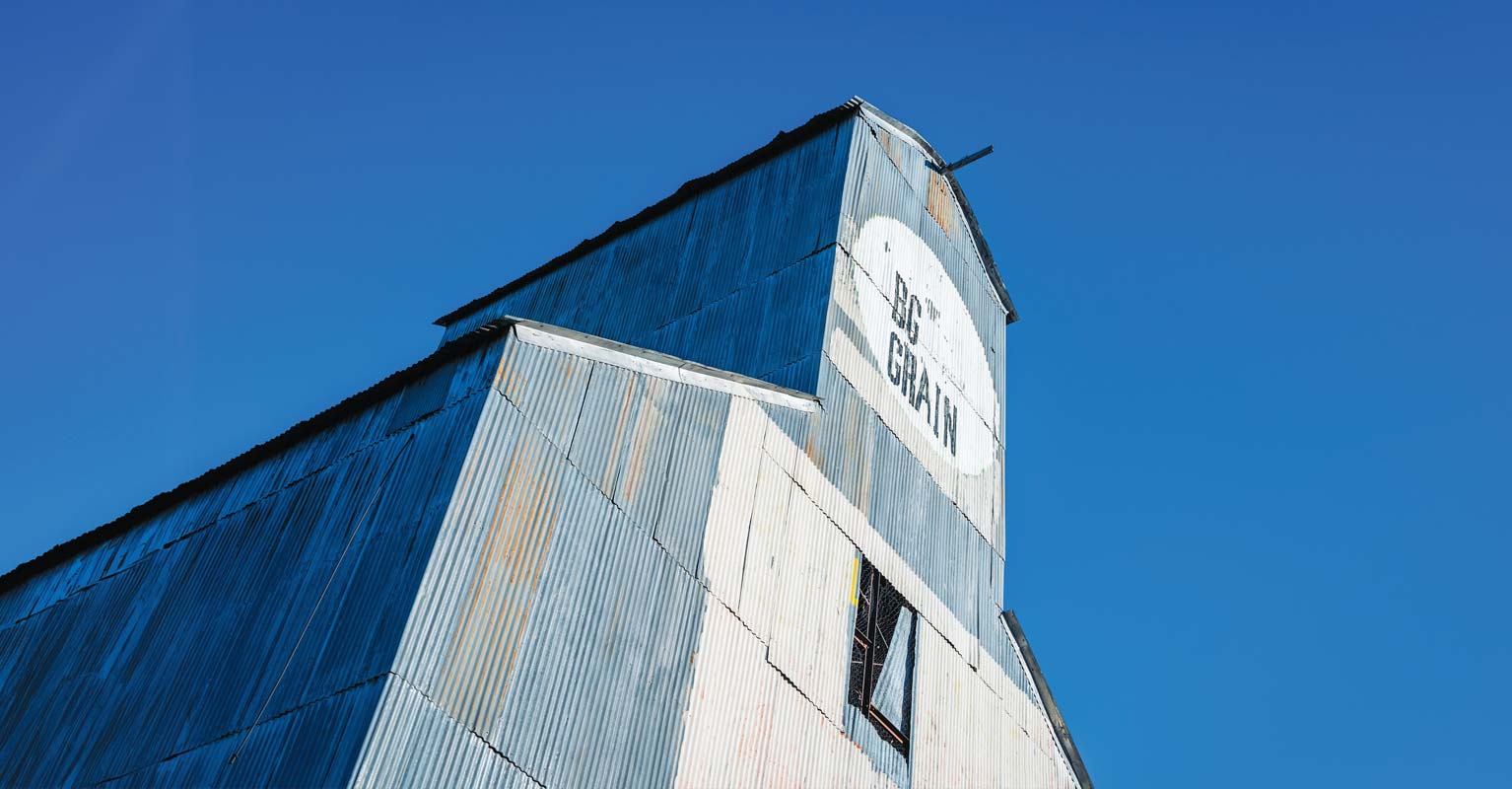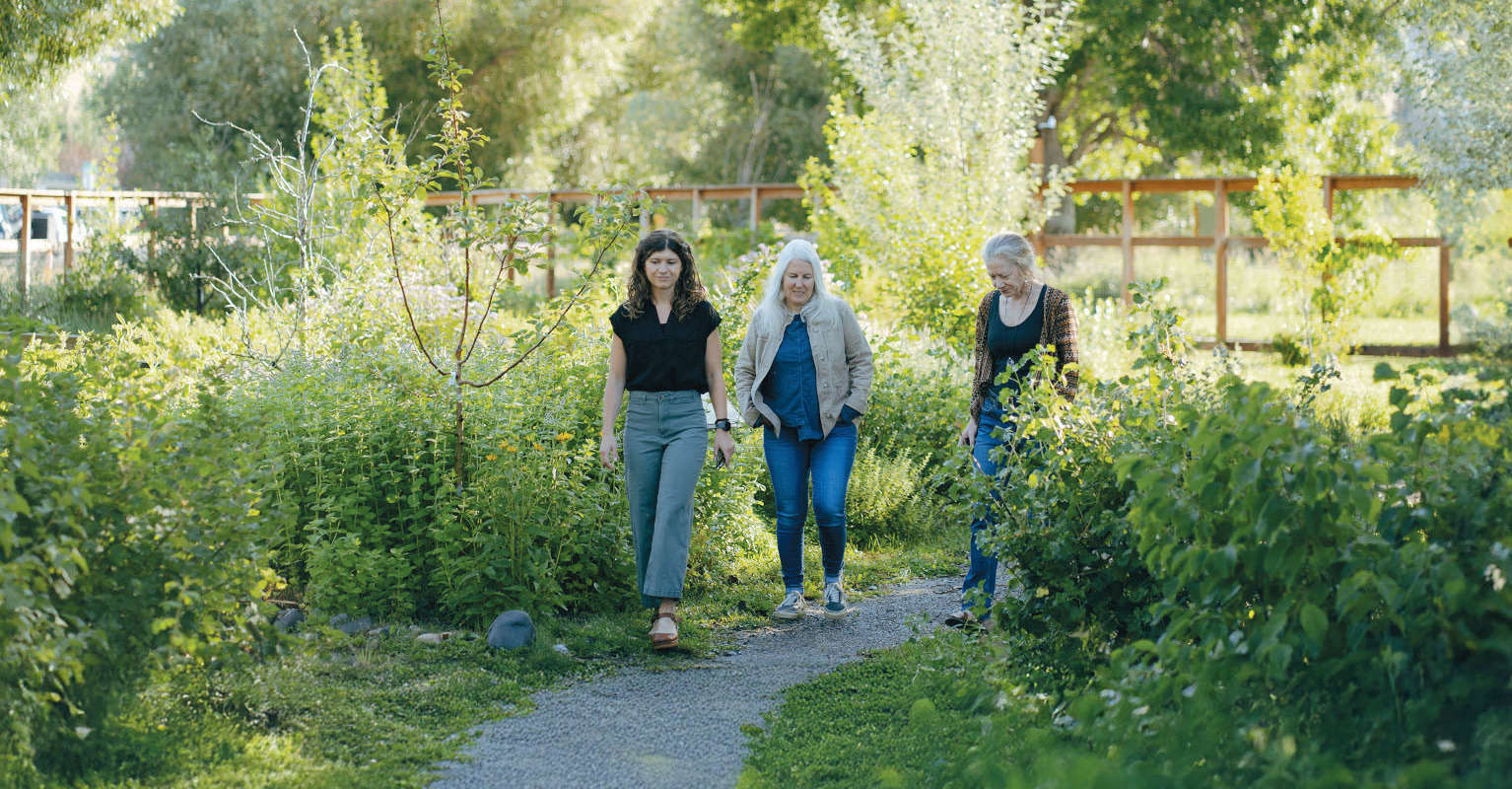The process that coffee producers and buyers around the world use to check the quality of a batch of coffee is called “cupping.” Each cup in this set of samples at Yellowstone Coffee Roasters will be scored as tasters look for aspects like cleanness, sweetness, acidity, mouthfeel, and aftertaste.
One of Life’s Dimensions
Funny that coffee should be such a symbol and symptom of relentless capitalist excess—the overcaffeinated, overworked, underslept go-getters pushing themselves ever harder toward more more more.
It’s funny not because the drug that coffee (to some) is merely a delivery system for isn’t conducive to this kind of American spirit; it’s funny because the coffee producers who I met with this fall are a rather chill bunch. If anything, they seemed more likely to take the day off, put people and coffee quality above profit, and generally treat work as one of life’s many dimensions rather than its sole purpose.
In short: I did not meet the local representatives from the Starbucks PR department. Instead, I met people with unique personalities and stories they were happy to share over the course of a few leisurely conversations.
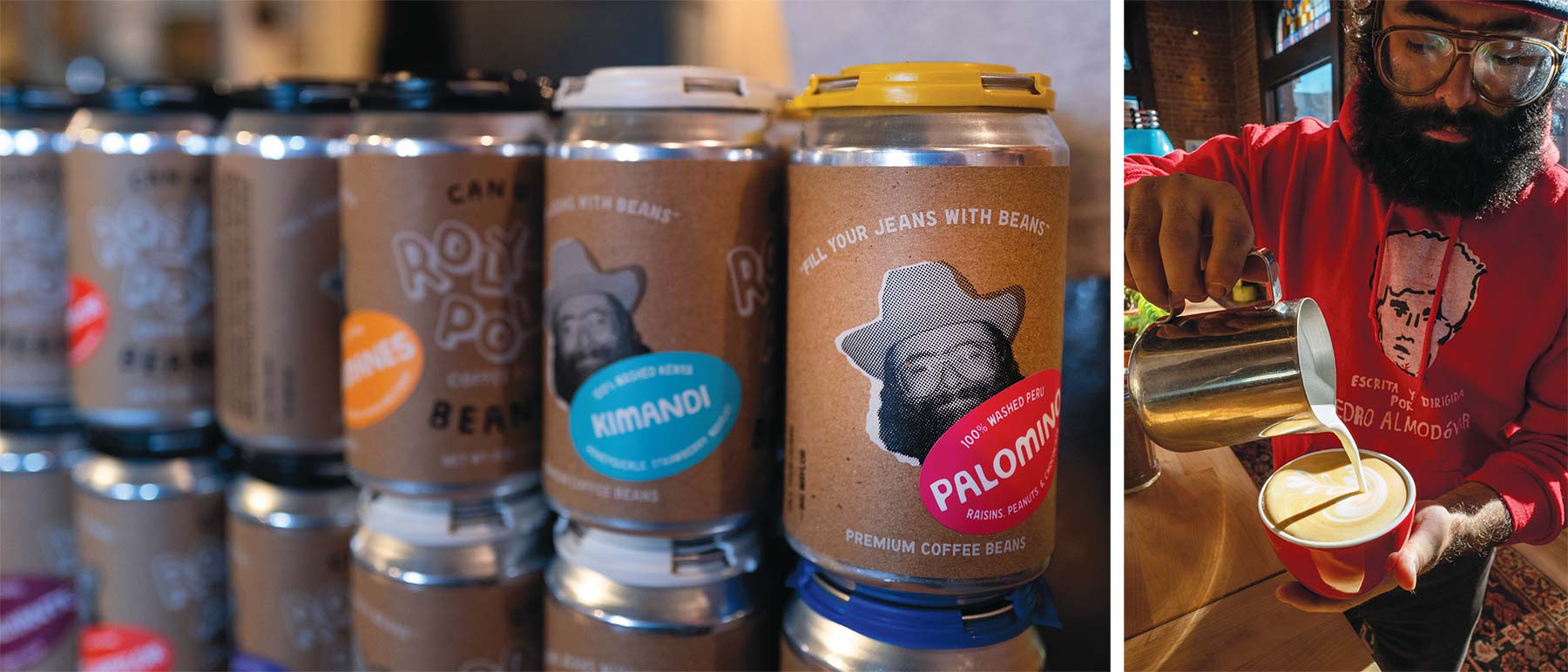
Roly-Poly Coffee Co.
At Roly-Poly, they take the beans seriously, not themselves. Not that Taylor Wallace needed to explain this when I met with him at the original Roly-Poly café on Broadway. They’ve come a long way since 2021, when they started selling coffee out of the back of a 1980s Ford Bronco, but they haven’t lost their sense of experimentation and improvisation. Today, their beans are distributed in cans that are held together with upcycled snap tops.
“I like to let opportunity in when it knocks,” Wallace says. One of those knocks came from the health department, which wasn’t keen on the whole Bronco setup. But that led Roly-Poly to the strange wonder that is its original café, which itself led Wallace to take up roasting.
“There’s a lot of over-mystification in coffee,” says Wallace, a self-identified snooty coffee drinker. “But if you buy good coffee it’s not as hard as you think.” Maybe so, but Wallace and his brother Gavin’s 20 years of combined experience in specialty coffee probably don’t hurt. As the café’s decor suggests, the Wallaces are a family of musicians. The name Roly-Poly, you might be wondering, doesn’t come from a kind of woodlouse but from the title of a hit 1946 song by Bob Wills and His Texas Playboys.
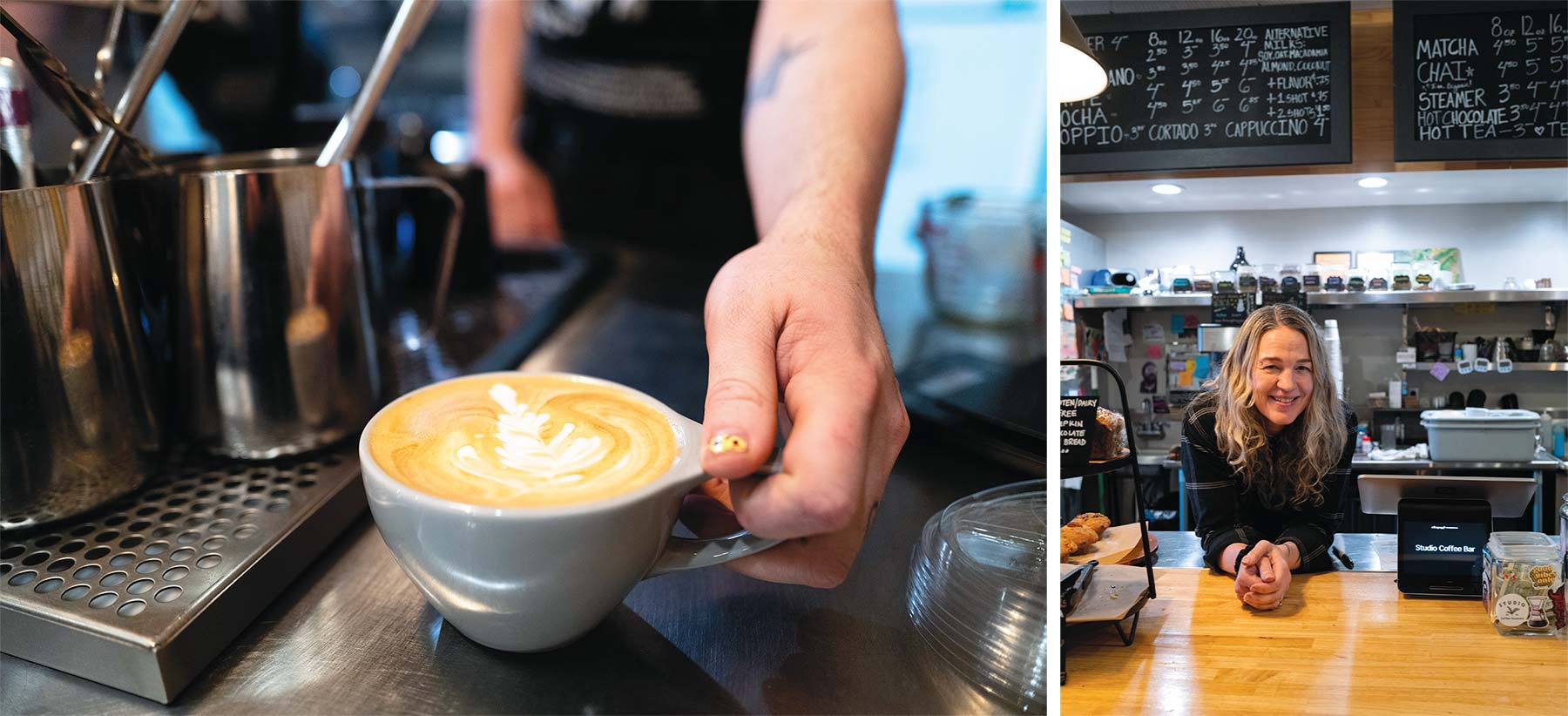
Studio Coffee Roasters
Noelle Johnson embodies Bozeman coffee culture: She’s laid back but committed to her trade. She got her start in craft coffee at its American epicenter: early 1990s Seattle, at Starbucks before Starbucks was Starbucks. After learning how to pull shots and make drinks and realizing what she wanted from a coffee shop, Johnson returned to her hometown of Bozeman in 1993 to open The Daily Coffee Bar on College Street with the help of her family. Since then she has been at the heart of the Bozeman coffee scene.
In 2008, she opened a second Daily location in the Cannery District. And in 2017 Johnson established Studio Coffee, where she began roasting her own beans. The next year, she sold the Daily to focus all of her energy on roasting, which she does at her roastery on North Bryant. During the height of the pandemic, when the new owners decided they would keep only one location, Johnson bought back her space on College Street and opened a new shop there under the name Studio. Her focus now is on quality rather than growth. “My goal is to stay small this time around; stay small and have fun.”
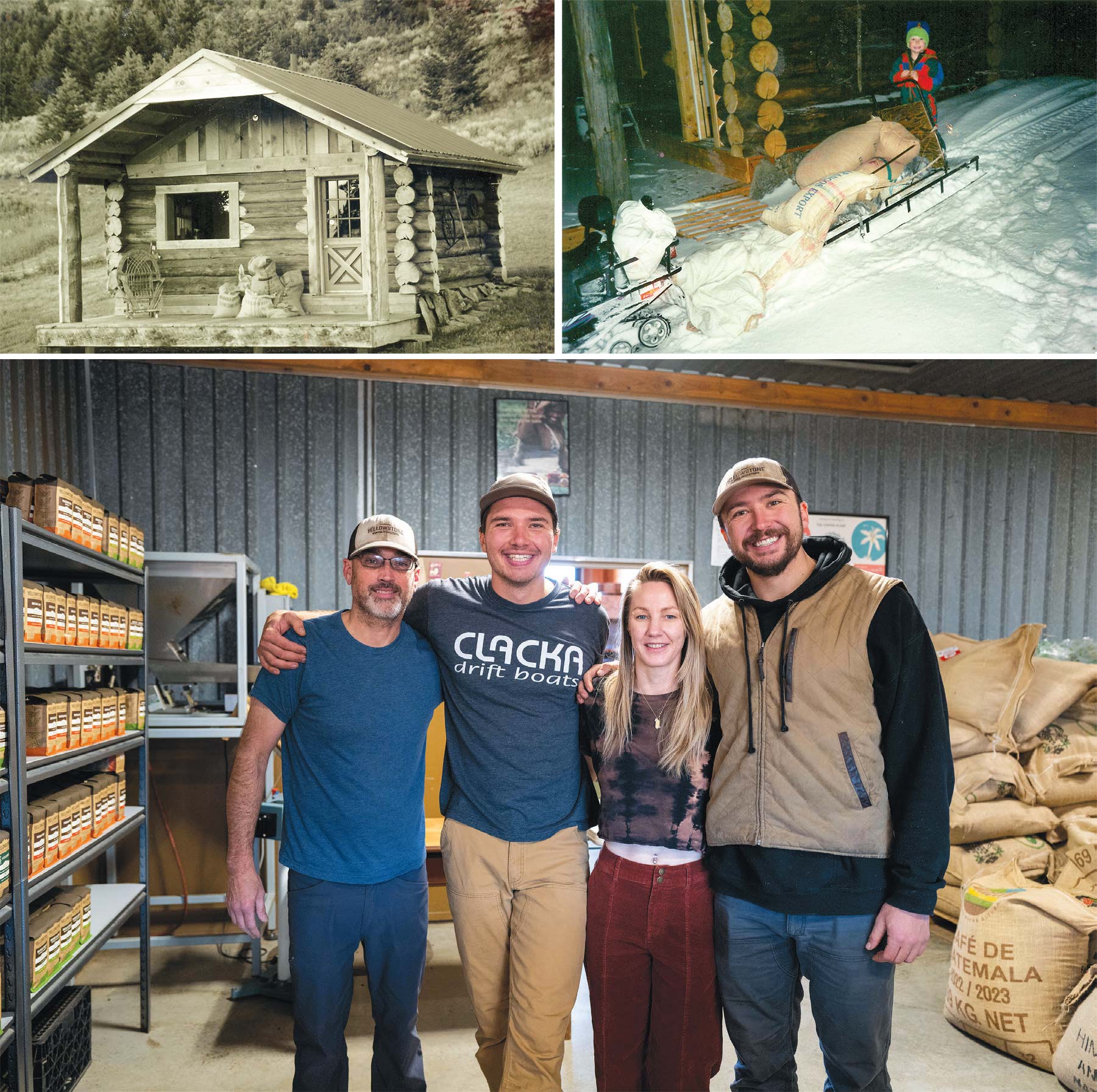
Yellowstone Coffee Roasters
Tim and Liz Weyer were in Seattle, too, as Starbucks was taking off. Though they didn’t work at Starbucks, they witnessed coffee’s transformation into a social beverage. Inspired, they set out in a bus, selling coffee as they traveled. After settling down in Bozeman, they started the Pony Xpress coffee cart at the Old Safeway on Main Street. In 1998, the Weyers began roasting their own beans in a log cabin on Quinn Creek Road. Two years later, they acquired property on the Bozeman Pass, where they have operated ever since. It’s a beautiful place to spend an afternoon watching the sun set, as I did with Ben Weyer, Yellowstone Coffee’s second-generation head of coffee.
The Weyer family has maintained the heritage of the land by restoring and reusing buildings from the original homestead. This same spirit infuses their coffees, which, Ben says, “seek to highlight the essence of Montana” through careful roasting and blending. For as slowly as it feels like time moves outside town, they get a lot done. Yellowstone roasts upwards of 20 coffees at a time, rotating roasts every three to six months, establishing themselves as the main grocery distributor in the region, and providing roasts for regional restaurants, cafés, universities, and other small businesses. Did I mention that they work only four days a week? Work, like coffee, I can imagine Ben saying, should be approached with a quality-over-quantity mentality.
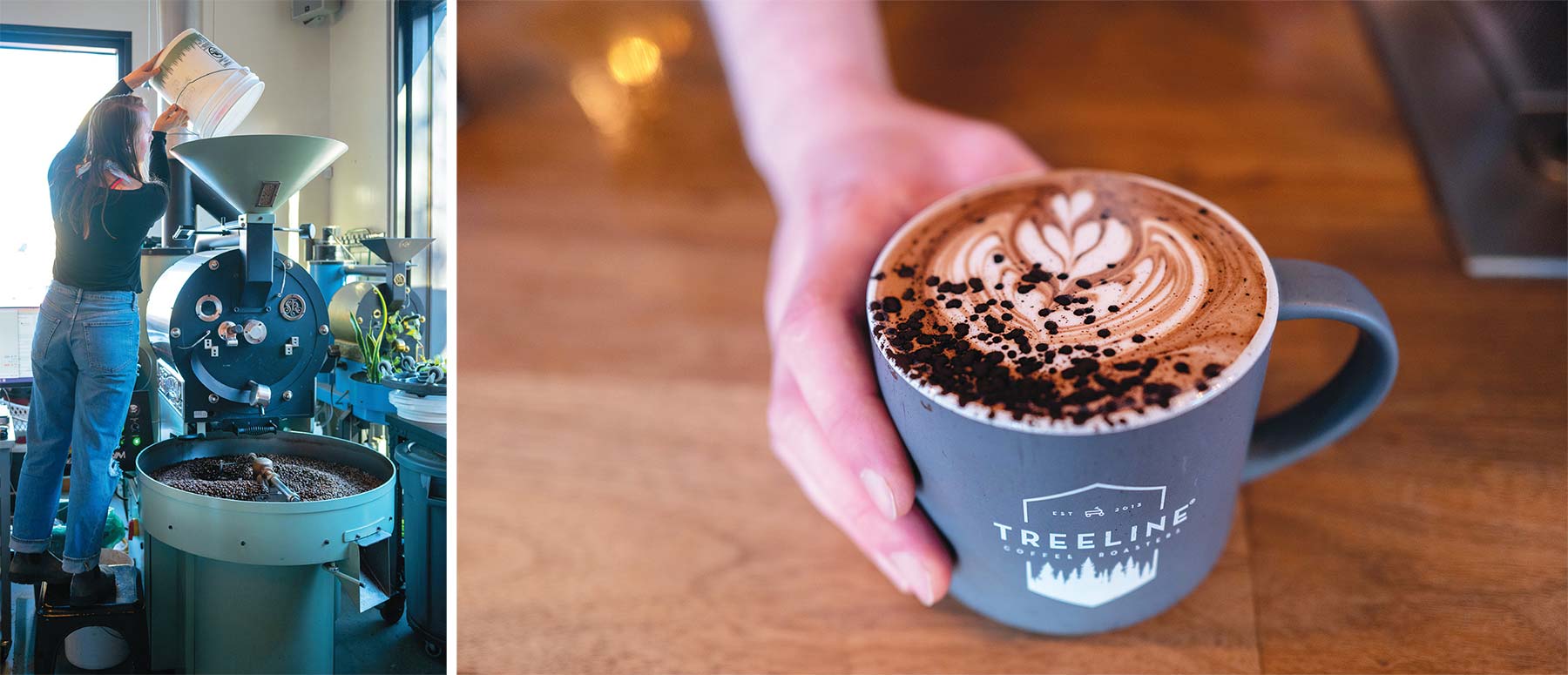
Treeline Coffee Roasters
Speaking of Seattle, did you know that Bozeman likely has more coffee shops per capita? I didn’t either until Natalie Van Dusen shared this fact with me at the Treeline Roasting Room on North Wallace. Van Dusen was a longtime hobby roaster prior to relocating from San Francisco to Bozeman and opening Little Red Wagon Coffee Roasters in 2013. Then, in 2016, when she found the Wallace location, she was ready to open a café and rebrand as Treeline. She calls the location the Roasting Room, a fitting name as the roasting takes place on the main café floor, on the roaster affectionately known as “Beulah,” who replaced the smaller “Francis,” who stands by for support.
Treeline is respected among the coffee cognoscenti for its delicate light roasts. Van Dusen offers the analogy of cooking steaks: “If you care about quality, you don’t want to cook them into indistinguishability.” It’s not just the beans, though. Treeline’s attention to detail extends across their brand and products. To enter the Roasting Room is to meet an integrated community of coffee lovers at work and at leisure.



